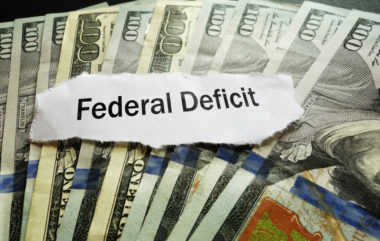If you suffer from a temporary or permanent disability that leaves you unable to work, you can quickly find yourself facing a financial emergency. Without a fixed income, common financial duties like handling your mortgage or paying student loans can quickly stack up and lead into total financial ruin.
Table of Contents
What Is Disability Insurance?
Disability insurance is a form of insurance that kicks in when a disability leaves you unable to work. Although social security does pay out some benefits to those with disabilities, these benefits are often very little — in principle, just enough for a person to live on — and questions about whether or not the next generation will ever retire have called into question the sustainability of social security into the future.
Unlike social security for disabilities, disability insurance is run by private companies. As with most insurance programs, you pay a premium to the insurance company month over month. If you become disabled in a manner covered under the terms of your insurance policy, then you will receive benefits according to the terms of your policy. Typically benefits are paid out in the short term (for example, about six months) or the long term (for the rest of your life), depending on what kind of disability insurance you have.
As with many insurance policies, you are likely to encounter many confusing terms when shopping for disability insurance. Here are a few terms that you absolutely must understand before signing on to any policy:
- Elimination Period: The period of time that you must wait after becoming disabled before you receive benefits. Increasing the elimination period on your policy will lower your premiums and decreasing it will lead to higher premiums.
- Benefit Period: How long your benefits will last. If you just need insurance to cover your expenses while you recover from an injury or illness, this could just be a few months. If you are concerned about becoming permanently disabled, it could last for years or for your whole life.
- Benefit Amount: How much you will receive in benefits. Typically this amount is paid out month over month.
- Exclusions: Not every kind of disability is covered by every disability insurance policy. Policies will often have exclusions, or types of injury or disability that they will not cover. Review your policy for exclusions before signing on.
- Non-Cancelable: In a non-cancelable policy, the insurance company can’t cancel, raise premiums, or cut benefits for policyholders as long as the policyholder keeps up on their premium payments.
- Guaranteed Renewable: A guaranteed renewable policy is one where the insurance company is obligated to continue coverage as long as the policyholder is up to date on their payments.
- Own-Occupation: An own-occupation disability insurance policy will provide benefits in the event that the policyholder is unable to perform their typical occupation because of a disability, even if they could still do another job. For example, a cello player who has injured her hand and can no longer play the cello.
Short-Term Disability Insurance
There are two mains kinds of disability insurance: short-term and long-term. As you might expect, short-term disability insurance provides assistance over a shorter period of time. Usually these policies will benefits just long enough for a policyholder to recover from injury and return to work.
How Short-Term Disability Insurance Works
When you sign up for a short-term disability insurance policy, you can expect to pay a monthly premium. This premium goes into a big pot of money managed by the insurance company and, when one of their policyholders is injured or becomes disabled in a way allowed under the policy, the pot will be used to pay out benefits. Benefits are usually calculated at around 80 percent of your usual paycheck, but be sure to confirm the exact benefit amount in your policy.
Short-term disability insurance policies have a limited benefits period. Three to six months is a good starting point for what to expect, but be sure to check the terms of any policy that you’re considering.
Many people will encounter short-term disability insurance when they’re getting a new job. Companies may offer short-term disability insurance as a benefit to their employees, with the company picking up part or all of the premium. Short-term disability insurance can be a good perk if you’re worried about missing time at work because of an injury or illness, regardless of whether or not the cause of your disability is workplace-related.
Short-Term Disability Insurance Pros and Cons
Pros:
- Your employer may help pay for your policy or cover the premium in its entirety, making it a good deal for you.
- If you work in a field with some risk involved, you can rest easy knowing that you’ll be able to make ends meet while you recover from an injury.
- Short-term disability insurance is sometimes used by pregnant women who are unable to work for a limited period of time because of their pregnancy.
- When coupled with long-term disability insurance, a short-term policy can help cover the elimination period before your long-term benefits kick in.
Cons:
- Given the short benefits periods of many short-term disability insurance policies, it may be more beneficial to simply save money for an emergency fund, rather than paying a monthly premium.
- Benefits won’t usually cover your full salary, so if you’re living paycheck to paycheck you may not be able to get by on benefits alone.
- Insurance companies may put your injury or illness under intense scrutiny to avoid paying benefits.
Long-Term Disability Insurance
Short-term disability insurance helps you get back on your feet after an injury, but long-term disability insurance will help you stay afloat when you expect to be disabled for the foreseeable future.
How Long-Term Disability Insurance Works
Unlike short-term disability insurance, a long-term policy is probably something that you will have to buy for yourself, without assistance from your employer. Long-term disability insurance will typically provide up to 60 percent of your usual monthly income in benefits, although the exact amount is something that you will probably have to negotiate when you apply for your policy.
Long-term disability insurance policies will usually keep paying out benefits for years, or even up until retirement. You may take this time to train for a new occupation (if your policy included a own-occupation clause) or just wait until your retirement benefits kick in. However, keep in mind that you won’t receive long-term disability insurance benefits until after the elimination period on your policy has passed.
As with short-term disability insurance, you can expect an insurance company to put your disability under intense medical scrutiny before they will start paying benefits.
Long-term disability insurance is most useful for those in careers that carry a high degree of risk. Especially when there’s a chance of sustaining an injury that could take you out of the workforce for good.
Long-Term Disability Pros and Cons
Pros:
- Long-term disability insurance can help pay for medical costs or long-term care facilities following a life-changing injury.
- Benefits are tax-free, so even though the benefit amounts don’t equal your previous salary, they may get close to your old income after taxes.
- Protects your family and dependants in case you are an important breadwinner and you are left unable to work.
Cons:
- In order to make up for long-term benefits, premiums are not cheap and employers are not likely to help like they are with short-term disability insurance.
- Policies will often include exclusions, including bans on pre-existing conditions, making coverage useless in some cases.
- As with any form of insurance, the more likely you are to benefit from long-term disability insurance, the more it is likely to cost you. Premiums only go up as you get older and the expected benefits period only goes down.
- Long-term disability insurance is not a substitute for life insurance and will not provide any coverage to your family in the event of your death.
State Disability Insurance Programs
Five states offer state-sponsored disability programs — essentially disability insurance for all employees in the state, where every employee working in that state pays into a pool through their taxes and people who become injured and disabled can draw from that pool. These states and programs are:
- California: Disability Insurance and Paid Family Leave
- Hawaii: Hawaii Temporary Disability Insurance
- New Jersey: New Jersey Temporary Disability Insurance
- New York: New York Disability Benefits Law
- Rhode Island: Rhode Island Temporary Disability Insurance
Disability insurance can help pay the bills and manage medical costs if you become disabled and you are unable to work. Be wary of stifling exclusions and high premiums and look for disability insurance policies that both non-cancelable and guaranteed renewable.
Image Source: https://depositphotos.com/





